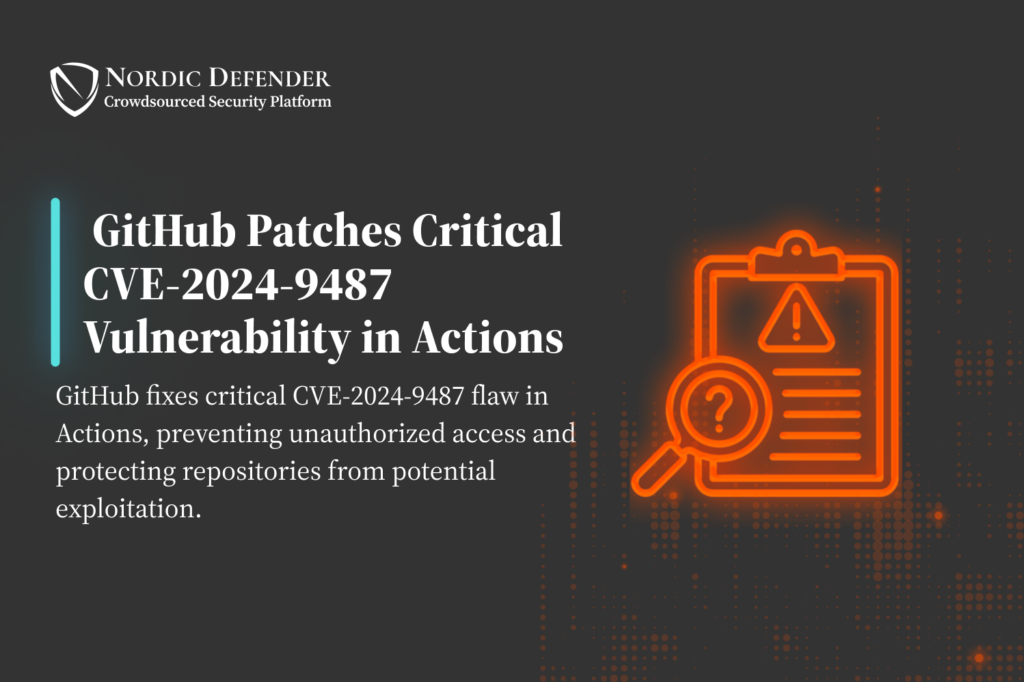In a significant move to safeguard its users, GitHub recently addressed a critical vulnerability that could have put millions of repositories at risk. This flaw, rated high in severity, affected GitHub’s Actions, a popular tool for automating workflows. If exploited, the vulnerability could have allowed threat actors to gain unauthorized access to repositories, potentially exposing sensitive data or altering important code.
The Nature of the CVE-2024-9487 Vulnerability
The vulnerability lay in how GitHub Actions handled certain input parameters, opening a potential route for attackers to inject malicious code. Specifically, it allowed attackers to manipulate workflow files, triggering unintended behaviors that could compromise the integrity of repositories. Considering the widespread usage of GitHub Actions in automating CI/CD (Continuous Integration/Continuous Deployment) processes, this flaw posed a serious risk to organizations relying on GitHub for their software development and deployment pipelines.
GitHub’s Swift Response to CVE-2024-9487
GitHub acted quickly to patch the vulnerability once it was identified. In line with their commitment to transparency and security, the company notified users and pushed an update that neutralized the threat. GitHub also urged developers to review their repositories and ensure they are following best practices for securing workflow files. This includes minimizing the exposure of secrets, setting up proper access controls, and regularly auditing workflows for any signs of suspicious activity.
What Does This Mean for Developers?
While GitHub’s patch has eliminated the immediate threat, it serves as a reminder of the ever-present dangers in the software development ecosystem. Developers must remain vigilant, especially when it comes to third-party integrations and automations like GitHub Actions. Reviewing permissions, validating inputs, and keeping up with security patches are essential steps to maintaining the security of code repositories.
How to Protect Your Repositories Against CVE-2024-9487
To safeguard against potential threats in the future, GitHub recommends the following:
- Use Secrets Sparingly: Only include necessary secrets in your workflows, and ensure they are encrypted.
- Validate Inputs: Always validate the input parameters used in workflows to prevent unauthorized actions.
- Limit Access: Grant the minimum level of access required to run workflows, following the principle of least privilege.
- Regular Audits: Periodically review workflows for any vulnerabilities or irregularities that could indicate a compromise.
Conclusion
This recent incident underscores the importance of a proactive approach to securing development environments. While GitHub has moved swiftly to patch the flaw, developers must also do their part by adopting strong security practices and keeping an eye on emerging threats. By doing so, they can better protect their repositories from similar vulnerabilities in the future.
Staying informed about security updates like this one and implementing best practices will help your organization remain resilient in the face of evolving cyber threats.
